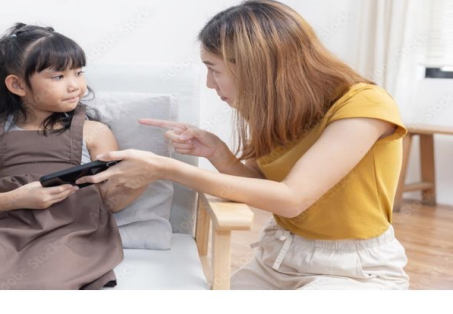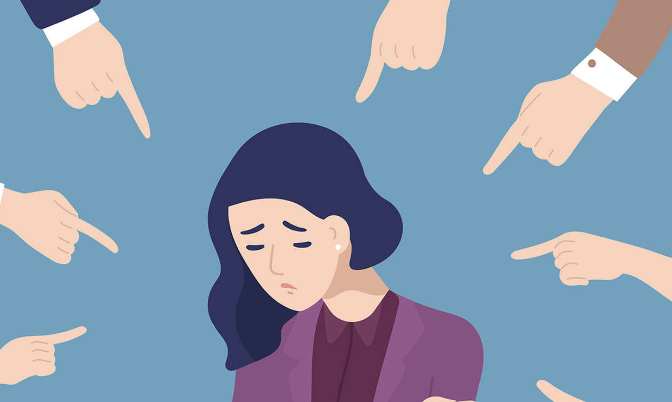Couples therapy has recently become more popular because of its value. More and more couples are seeing that it can help in all areas of their relationship.
Some of the ways couples therapy is popular:
It can help define a problem you can’t see.
So often, couples come into counselling knowing that they want to work on their relationship issues, while others are unsure. Your relationship can reach its full potential when you and your partner have regular time and space to express your feelings and thoughts.
Counselling couples provides objective insight from a distance and helps to illuminate aspects of your relationship that may not be apparent. Through this process, a therapist can be a guide for you.
It can prevent a ‘relationship stalemate’.
In most cases, couples seek couples counselling because they have problems addressing issues as their relationship has matured. For example, family planning could be one factor for some, while communication style might be another. Suppose you examine these topics in a confidential setting. In that case, you may learn if your values match up by highlighting both perspectives and understanding them.
Alternatively, if you’re constantly fighting over superficial issues, it might signify that deeper problems aren’t being addressed. But, again, continuing your couples counselling can help you prevent relationship stalemates before they occur.
It can strengthen intimacy.
If a relationship has lost its familiarity, it can seem like ‘going back’ is impossible. However, couples therapy can sometimes reignite the s[ark because it focuses on the two of you.
It can help you grow as a person, not just a couple.
There is a lot of ‘skills work’ in couples therapy. The expression, communication and exploration can benefit your relationship but also you as a person.
Why is relationship therapy necessary?
It can help address communication issues. Communication is at the core of all relationships. Therapy is crucial because it shows couples what positive communication looks like and how to do it.
It can help with sexual issues. Depending on the situation, sexual encounters can be healing and a bridge between couple members or can lead to anxiety, embarrassment, and hurt. The role of a counsellor is to help people deal with sexual issues.
It can tackle infidelity. Infidelity hurts. But it doesn’t necessarily mean a relationship is over. Relationship counselling can provide a place to heal.
It’s not just about the couple. Outside of their relationship, couples have relationships with other people. The list includes friends, family, children, and supervisors/bosses/professors. These relationships can be healthy or unhealthy. Many items can be discussed, including boundaries, communication with exes, and together and alone times.
Nontraditional relationships. The challenges surrounding nontraditional relationships, such as polyamory, open relationships, and swinging, are many. However, counsellors who are comfortable working with people in nontraditional relationships often provide a safe space for couples to work through problems.
Blended families. Children from another relationship present their challenges and struggles when one or both partners are blending. Parenting differences, a child’s role as an adult, and the family’s new identity need to be discussed.
There may be practical issues to sort out when a relationship has ended and emotional problems, such as housing and children. Another aspect of couples counselling is deciding how and when to communicate.
It helps with digital problems. Communicating via social media has its pros and cons. Couples often have a conflict regarding who to “friend,” what to “like,” and who to text, block, or chat with. No matter how many emojis are used, words can be misconstrued and misread. Relationship counselling can help couples work through problems technology has caused.
After the rust is broken, relationships can be harmed or even destroyed. Learning to trust again is a slow process. Couples can gain insight into the process of regaining trust through counselling and can be provided with tools and direction to help.
13 Signs That Tells You It’s Time To Get a Couples’ Therapy
1. When you’re not talking. Therapists can facilitate new ways for people to communicate.
2. You talk but always talk negatively. Any behaviour that leaves one partner feeling judged, shamed, disregarded, insecure or wanting to leave the conversation can be considered negative communication.
3. When you’re afraid to talk. The topics can range from sex to money to annoying little habits that have been exaggerated.
4. When affection is withheld. Relationships become imbalanced if one partner becomes a “parent” or “punisher.” This can be something as simple as giving the “silent treatment.”
5. When you see your partner as an antagonist. As partners, you are not adversaries; you work together. However, it’s time to seek help if you begin to feel you are on opposite sides.
6. When you keep secrets. When you keep secrets from your partner, something is wrong.
7. When you contemplate (or are having) an affair. A relationship may survive after a partner has had an experience, but it’s best to seek help before that happens. As long as you are both committed to the therapy process, the marriage has hope.
8. When you are financially unfaithful. When one spouse hides spending or tries to control every aspect of money, the relationship is in trouble. A professional can help you resolve the conflict if your partner objects.
9. When you live ‘together but separate’. Those having difficulty communicating, talking, or being intimate may need help from a good therapist.
10. When your sex life has changed. Changes in the bedroom indicate a problem. A couples therapist can open a dialogue and help the healing process.
11. When you argue over and over again. A therapist can help couples discuss the small and the significant issues they have and help them figure out the real concerns.
12. Ongoing relationship issues. Even though differences might seem impossible, they can be overcome if both partners are willing to make space for each other. Again, therapy is an avenue where this can be communicated.
What is the best therapy for couples?
Couples counselling. Ideally, you should take advantage of a type of marriage counselling that works with both of you simultaneously. A marriage counsellor will usually only work with a couple whose partner agrees to attend sessions later.
Family Therapy. Many types of marriage counselling consider extended families and how they affect a couple. A combination of couples therapy and families therapy may help in understanding the problems and possible solutions.
Religion-based. You might find it helpful to investigate the types of marriage counselling available through your faith group. Whatever your religion, you can get help by contacting your local representative. You can choose a marriage therapist or counsellor from a similar religious tradition when seeking help.
Imago therapy. This relationship theory allows couples to heal without pointing fingers and can be very effective in rethinking their relationship dynamics. Couples talk about their issues instead of focusing on theory or techniques.
Marriage-friendly therapy. A lot of marriage therapists are trained in individual therapy. Therefore, they place the happiness of individuals above the enjoyment of a couple or a family. Select the kind of marriage counselling that will help you repair and maintain relationships rather than seek quick fixes for individuals in the relationship.
Narrative. This is a powerful method involving both of you telling your story as a ‘story’. It allows you to feel objective and less pressurised, as each person in the relationship realises that problems don’t define the person. Perhaps most importantly, it will enable you to see issues in context.
Some examples of questions that are used to frame narrative therapy:
- How do you interpret your feelings of trust when you are anxious?
- What are some ways in which “constant criticism” adversely affects relationships?
- In what ways can your shared dreams better be protected from being tainted by blame?”
- Can you make any changes to reduce the consequences of “not listening” as a couple?”
The counsellor is often the person who will listen to both of you and choose the type of counselling the ‘best fit’. Sometimes this involves multiple approaches.
Does couples counselling work?
Couples counselling achieves some critical outcomes, including:
- Couples learning new ways to identify and solve their problems
- Communication improvements in the relationship
- Couples can decide to rebuild their marriage after therapy. Sometimes couples will choose not to, which is an outcome that may be positive.
What does a couples therapist do?
Understand the relationship
Many questions will be asked in the first session of couples therapy, as the therapist learns about the individuals in the relationship and the couple. The couples therapist or counsellor should get to know each of you on a personal level.
Although these details may not seem significant to you, they are essential for your whole story to come together.
Identify themes
As therapy continues, the therapist will identify the themes and issues underlying the surface problems in your relationship. Often, couples are surprised to hear precisely the underlying root of the problem.
Develop Goals
Couples have varying goals. Perhaps you wish to rediscover love or better understand each other. Some of your dreams can involve developing specific skills or just getting through a significant change together, such as a job change. The goal of some couples may be to end the relationship on a positive note.
Together, you and your therapist will develop a timeline. It will happen after you’ve attended a few sessions and they have a better understanding of where your relationship is.
Teach New Skills
Relationship skills include:
- The ability to communicate effectively is an essential skill
- Patience and forgiveness skills
- Trust and honesty
- Selflessness and how to develop it
- Stress-management skills
Most couples already possess all the skills they need but just don’t know how to apply them. Your therapist will explain the value of these skills and illustrate how they can improve your relationship.
What are some standard couples therapy exercises?
The priority list
You and your partner need to know what each other wants—making a list of what you want your relationship to look like is a standard approach in couples therapy.
The list is:
- In the present tense (as in ‘we kiss hello every time we meet’)
- Guided by what you feel your relationship should be (for example, “we never go to bed without clearing an argument”)
- Prioritised
Couples are then asked to complete a master list they agree on before putting it somewhere they can see every day.
Identify your partner’s positive traits
The couple writes down what the other does to make them feel good. Cooking dinner, holding your hand, and checking in via text can be some examples. Next, couples should go over their notes and agree to complete two or three of those things next week. Finally, he suggests “expressing your gratitude and appreciation” to your loved one.
Get closer through physical connection
A therapist may suggest some form of physical connection therapy. Here, they may say that spooning is a good idea or that couples should share a long kiss at least once a day to have some kind of shared connection. Some even suggest that couples breathe in unison to synchronise heartbeats.
Keep eye contact
Here, therapists encourage couples to make extended eye contact. This renews a connection that may have been lost.
Therapists employ this method because they know that it focuses the attention on your significant other. While this can make us feel vulnerable, it allows us to concentrate on the major person in our life.
Argue positively
Here, couples are divided into speakers and listeners. First, the listener hears what the partner has to say on an issue, taking notes as they listen. Next, the listener summarises what has been said. Once the speaker has heard the summary and is happy with it, the roles are swapped.
This is a positive way to argue, get your points across without blame, and focus on listening and understanding.
What are the processes and techniques of couples counselling?
Couples counselling achieves a lot. A relationship is complex, and the counselling can take in discussions and processes around the following:
- Partners becoming aware of each other’s mistakes, as well as their own
- Problematic expectations on either side of the relationship that hinder growth
- Emotional pain and how it manifests for each other
- Day-to-day routines for the couple that will help them connect
- Behaviour modification including looking at habits and thought replacement.
Note: thought replacement is very effective and was developed as part of Buddhist practice 2500 years ago. The concept involves replacing a negative thought with a positive one every time. This will bring a more positive approach to problems and issues. Practice is very important because the process does not come naturally to our minds.
- Areas such as anxiety, fear and mental-health related concerns are part of the processes involved in the counselling.
How does a therapist stay neutral when treating a couple?
Therapists have a challenge in that they support both sides of a relationship but have to remain professionally objective.
Understanding the dynamic within a relationship is crucial. Once the therapist knows where the problems lie and how they are compounded, she will develop a plan for different behaviours moving forward.
Therapists will also spend time with individuals within the relationship to gain insight into their views. Bringing the two people together in couples therapy allows the therapist to deepen her understanding of the relationship and clarify the two identities involved. This clarity provides objectivity because the therapist will know the role each person has in the problem.
Fundamental principles towards neutrality:
- Therapists want the best outcome for both people in a relationship
- Therapists are, by definition, ‘professional healers’ and must work to that description for the couple
- They are natural problem solvers, and this informs their objective practice



